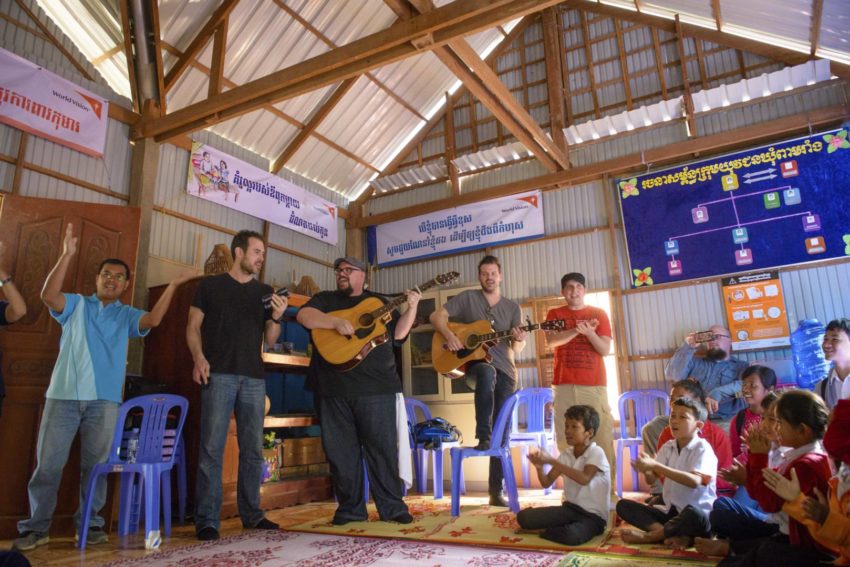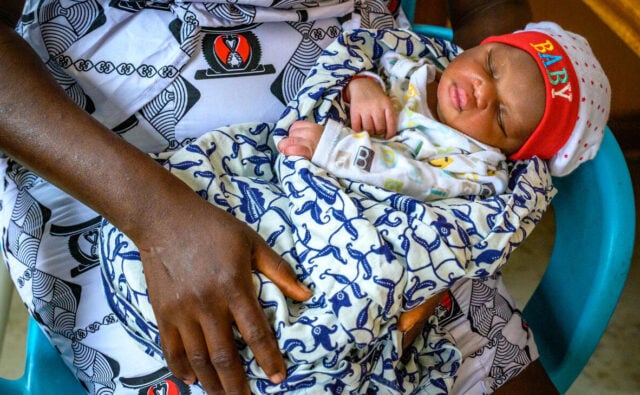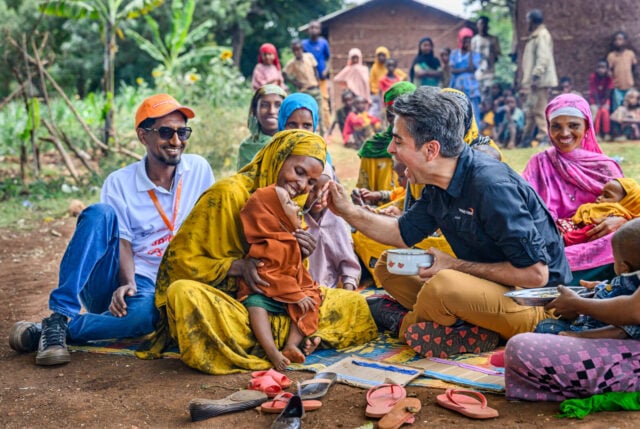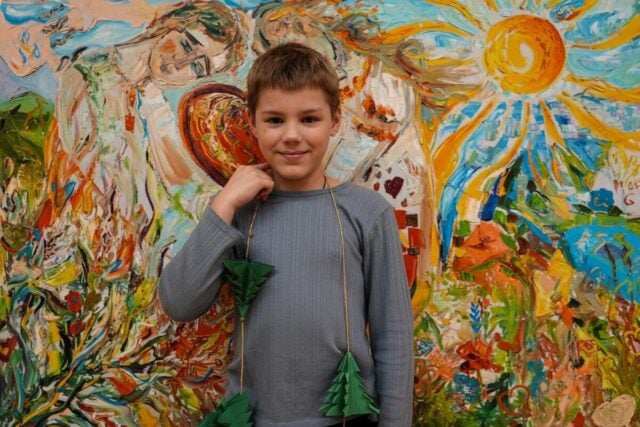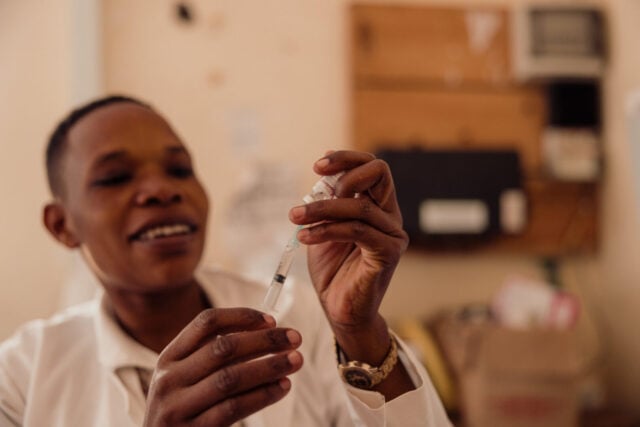Mike Weaver never wanted to be a world traveler. He was content touring the U.S. as the lead singer for the popular Christian band Big Daddy Weave.
But growing up, his parents sponsored children around the world, so when World Vision invited him and the band overseas to see the work firsthand, he was hesitant but open.
“When I began to travel, I began to associate faces with the work, and I’m haunted by these faces in the best way. I feel like I’ve seen the face of Jesus in these faces,” Mike says. “I see the effect of the work in the faces of children all over the world that we have met, and I feel the importance of Big Daddy Weave in this is to be ambassadors for those little faces, to put those faces in the way of people in America.”
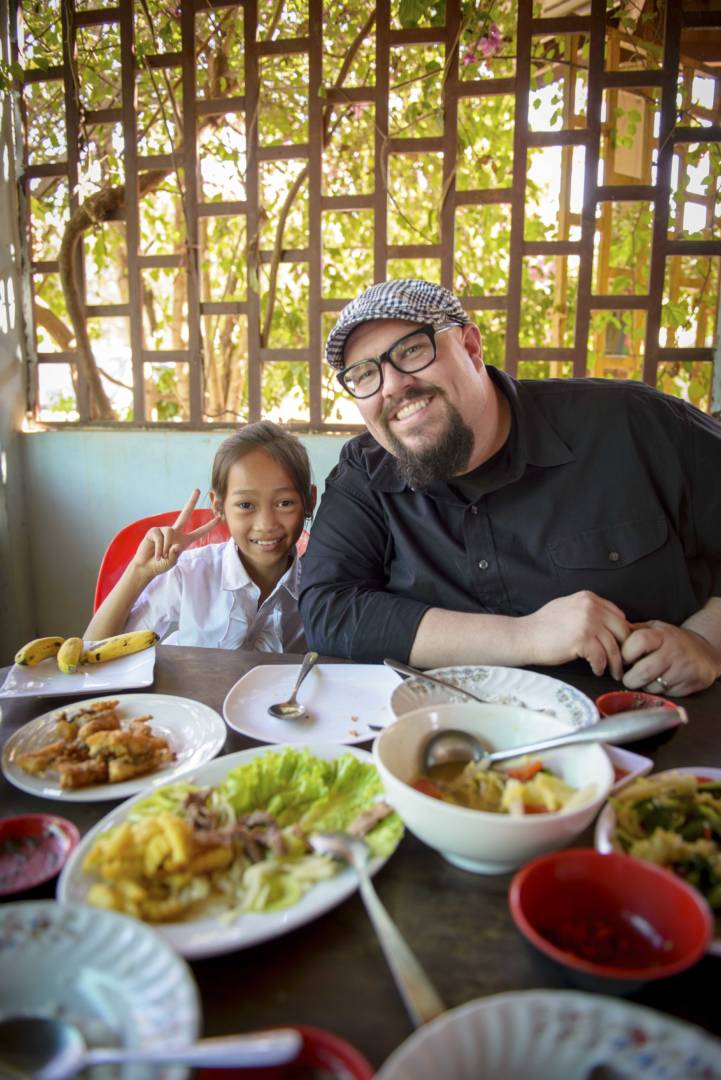
Mike and his wife, Kandice, are passionate about child sponsorship — they sponsor five children, and the band has gotten nearly 30,000 children sponsored at its concerts. World Vision recently spoke with Mike about sponsorship, how he came to be a world traveler, and how that impacts him today.
What stood out most to you when you began seeing World Vision’s work?
On our first trip to Ecuador in 2007, we were at 13,000 feet in elevation, and I said, “Wow, there’s a lot of fog,” and they said, “No, we’re in the clouds.” I’ll never forget the kids who came to greet us. We met at a school. These little kids came poking through the clouds, and we called them the faces in the clouds. World Vision had put in a school for kids who had never gone to school. It was opening doors that no one in their culture had ever opened to them. It was the love of God in the form of a school on top of a mountain.
Our second trip was to Africa, and I remember sweating the entire time. We showed up in Tanzania, and it was not the most impressive field of corn I had ever seen, but when I found out that no one had ever grown anything there before, it rocked me. These farmers were so excited to share with us how World Vision had helped them get water to this piece of desert, and now they can feed their families because of this piece of dirt. That corn was the love of God coming out of the ground.
When was the moment that you really wanted to travel abroad?
I became a world traveler in 2012 when I met the first child my family had sponsored; his name is Babayetu. God just did a thing in my heart, and I loved him. Those hours I had with him, we didn’t need a translator. We were smiling and holding hands, and he was showing me where he lived. They don’t have very much, but they threw us a party. I fell in love with him and his family.
I’m listening to all the other kids, and nobody is calling him by his name, and I was bummed because I love that name. It made my name seem super boring. Instead of calling him Babayetu, they were calling him Boniface. I don’t care what continent you’re on, that sounded like name-calling. So I asked the translator.
She found out that Boniface was the name he was given after he received Jesus. Because of their interaction with World Vision, he decided to make Jesus the Lord of his life. When they baptized him and brought him out of the water, they gave him a new name — Boniface, which means a better ending, a happier ending. I’m like, “You’ve got to be kidding me!” That was the moment I became a world traveler. Until then, I knew it was important, but I had no idea the sense of urgency with it.
We were about to leave and Babayetu came up to me, and he has tears in his eyes but he’s holding it together — there’s a manly thing in Maasai culture, and the boys are supposed to be tough. The translator is with us, and he speaks directly to me and translates, “This has been a happy day. When are you coming to see me again?”
Then I’m messed up, and I said, “I don’t know. I’ve never been to Africa, and I don’t know when I’m coming back again, but I promise you this, because this has been a happy day for me too, when I get back to America, I will tell every person I know about you and the chance we have to be a part of people’s lives like yours.” Then the band started asking, “Where are we going to go next?”
Where did you go next?
We wanted to see World Vision fight sex trafficking, so we went to Cambodia, and we felt the pain of Cambodia. We walked around the Cambodian Killing Fields. There are literally shallow graves and skeletons coming out of the ground because the killing was absolutely brutal. My brother said, “It’s like the earth is screaming.” There was a genocide museum, and they have pictures, and I couldn’t finish the tour. I remember leaving and sitting on a stump outside just trying to imagine and understand how people can do this to other people.
We saw all kinds of stuff with World Vision, but what I remember the most is visiting kids that live in the trash. They are treated like the trash they live in by their culture, and nobody misses them when they disappear into human trafficking. We showed up, and it was snack time. The kids were all excited, and they’re all shocked by the size of me — they’re looking at me like they had seen Godzilla — but I’d smile, and they’d know it’s all good.
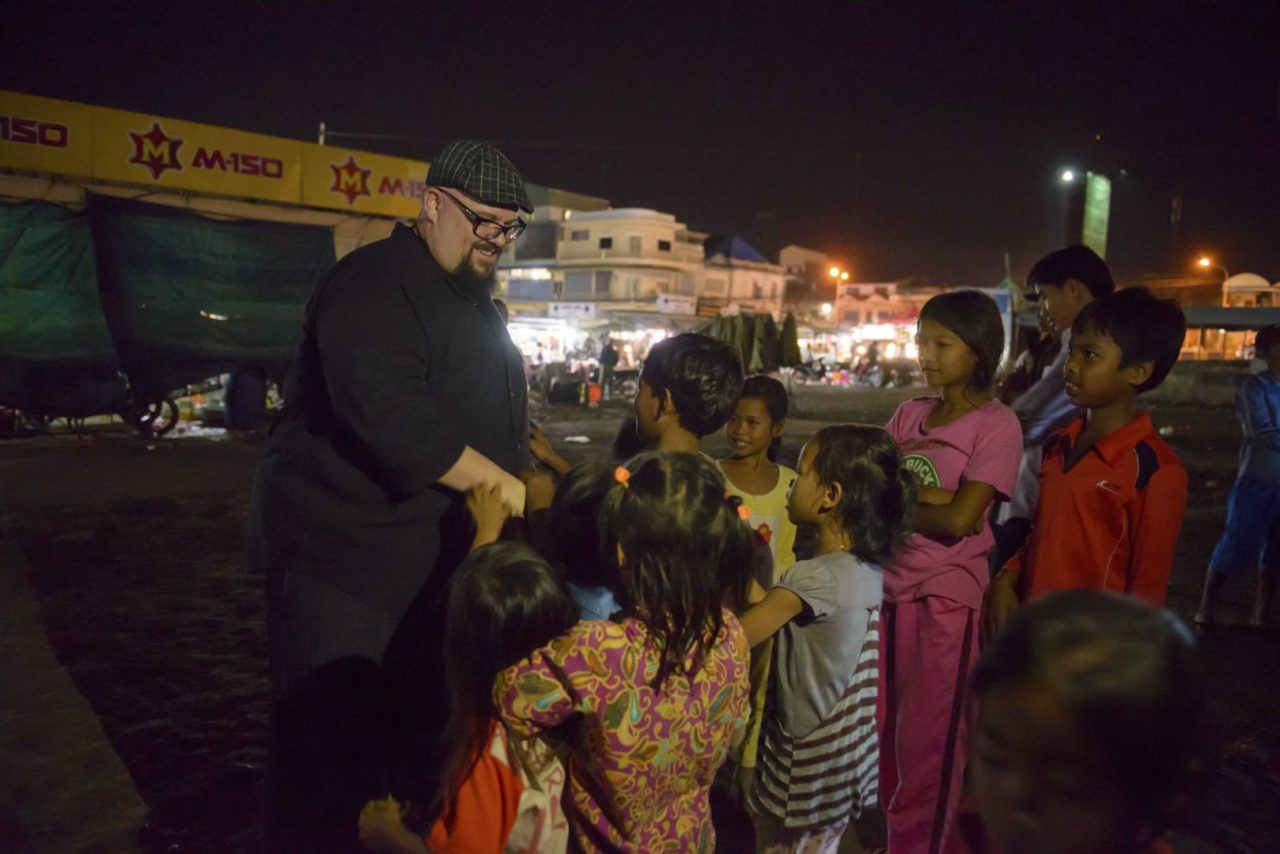
We started playing games, and you’d think we had brought Disney World to them. They’re so starved for someone to take care of them. They’re so starved for someone to pay attention to them — and that’s how the traffickers can get to them so easily.
Our friends from World Vision are everywhere in that town. Every night in Phnom Penh, they’re somewhere telling stories and bringing snacks. World Vision is telling them, “You’re not trash because you live in the trash. You’re very precious. But there are people who want to take you away to a life that’s not good for you, and this is how you look out for that.” It’s teaching them to be street smart. They’re being the love of God to these kids.
When you see such suffering like you did in Cambodia, how do you process that?
I don’t know how to process all of it, honestly. Something I brought back from Cambodia was just hurt. I’d wake up in the middle of the night, and I’d sit downstairs, and it dawned on me at one point what the hurt is, what the uncomfortable is — it’s God’s pain. I’ve sat in my living room in the middle of the night when my time is messed up from traveling and cried my guts out, and said, “God I’ll cry with you.” I cried with God in my living room and hurt with him because he hurts for this. He’s God, and he could snap his fingers, and it could all be gone, but there’s a way of seeing things he’s carrying out.
We have a huge privilege to represent the poorest of the poor to the body of Jesus in America and to try to make it real for them the way that people hurt around the world and to learn how to be a voice for them. It’s a giant privilege for me, and it’s a huge honor.
How do you talk about hard topics like child protection with your own children?
We speak in general terms with them. My son Eli is 10 years old — he can understand some things his 6-year-old sister can’t. And he’s ready to now, so as he’s able, we introduce him to some of the harder things. We talk about slavery; we don’t talk about sexual exploitation. He can understand “slave” because he’s studied the Civil War. Abraham Lincoln is one of his favorite presidents because he helped abolish slavery, so he can understand slavery, but he can’t understand some of the things with it. As the Lord opens doors for that, we love to speak into that, but as far as our kids go, we keep it general, and they have a sense that we’re helping this child on the sponsorship packet. That’s how we look at it — we’re praying for this one.
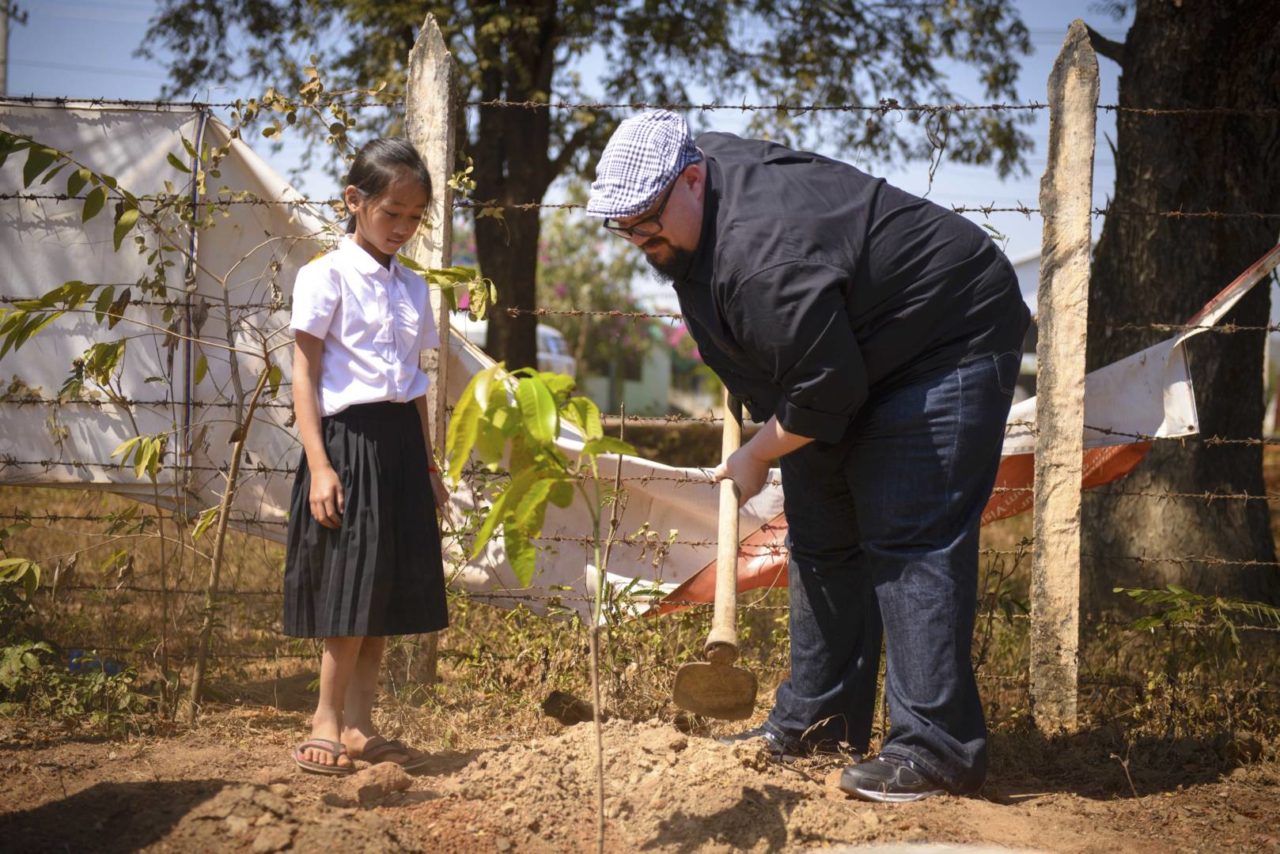
You recently saw child protection work in a different context in Armenia, so what was that like?
We heard about this very cold place where people who had stoves in their houses were dying because they didn’t have the money to heat their houses. So we went.
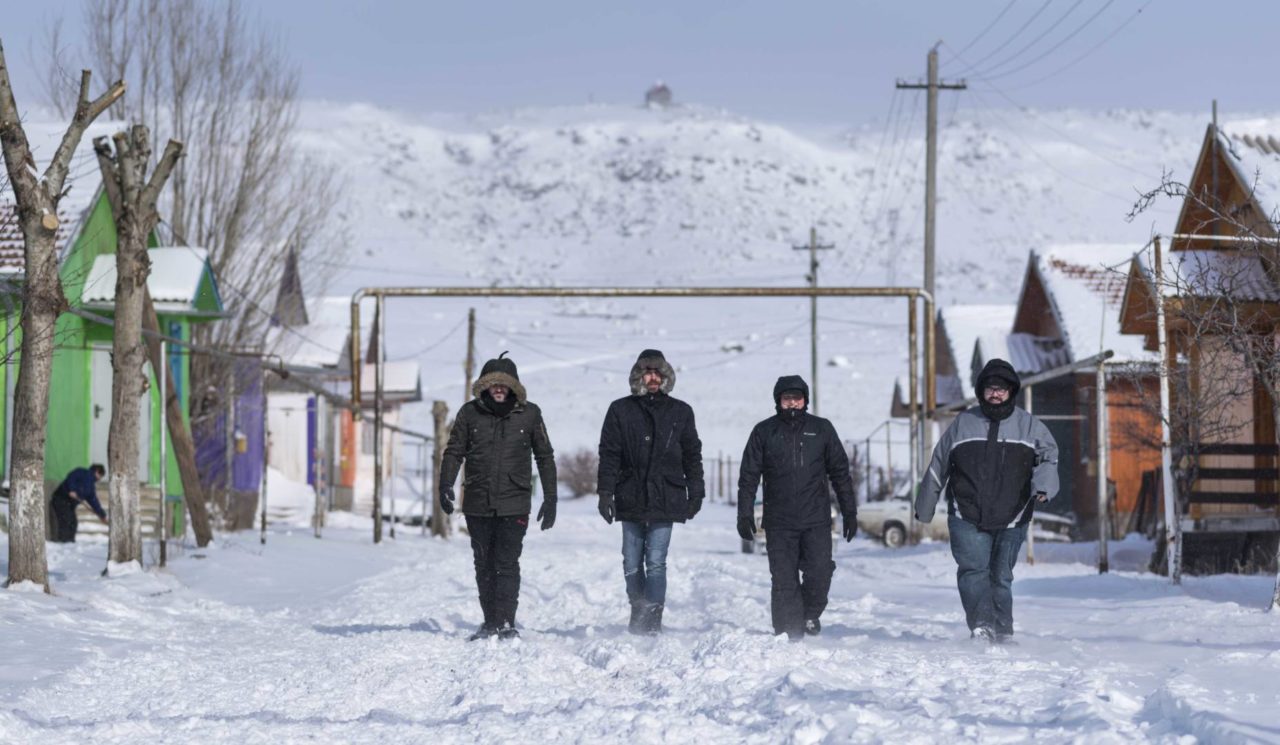
So much has happened to Armenia. They had this earthquake that tore up the country, and the collapse of the Soviet Union has prevented it from rebuilding.
We met this little guy named Gagik. He is a member of a family of six. The family lives in a storage container. I remember standing outside this storage container in this blizzard, saying, “Who lives like this?” Many of the dads in Armenia leave the country to find a job. Many of them never come back. Gagik’s dad had stayed there, but it made it really hard to provide. It’s never enough. His mom has a degree to teach biology, but it would take a year to save up enough money — a year’s salary is $4,000 — to bribe somebody for a job because [the system] is crooked. But Gagik has a condition that causes his brain to swell, and they had to take out a $2,000 loan to get treatment that’s only a temporary fix.
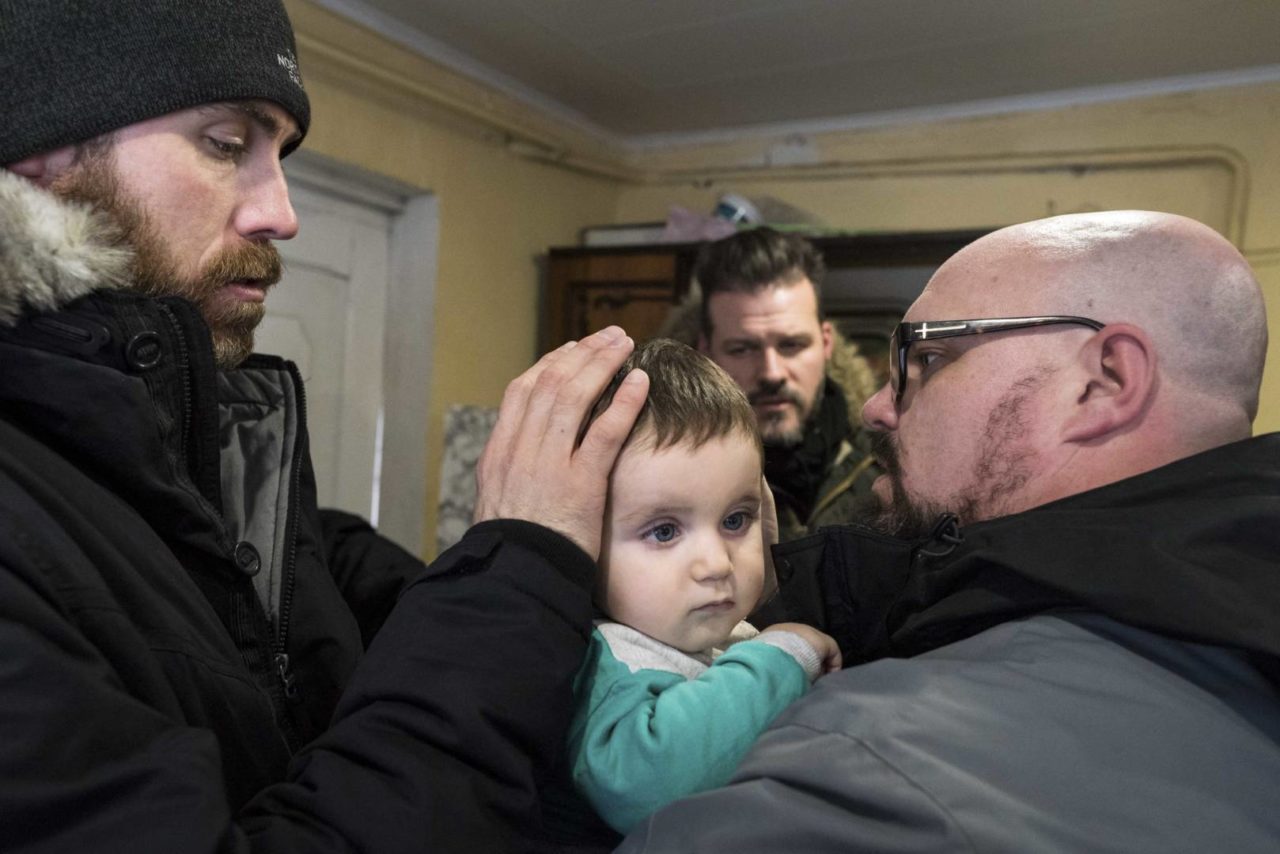
They have no idea how they’ll pay it back, and they’ll have to do it again, but they’re all smiling because we came to visit them. They were so hospitable. It was unreal. The story didn’t have a happy ending. You feel the tension. Now we get to share that with people every night. I’ll say, “Where’s the hope in this story? There’s hope in all these other stories. The hope is you — I’m looking at the hope, and it’s you.”
Thoughts from drummer Brian Beihl
Big Daddy Weave’s drummer Brian Beihl also spoke with us about his experiences traveling to see World Vision’s work.
“The thing I really like about World Vision is they don’t go into an area and just start doing something,” Brian says. “They find out what that area really needs and what they can do to help that.”
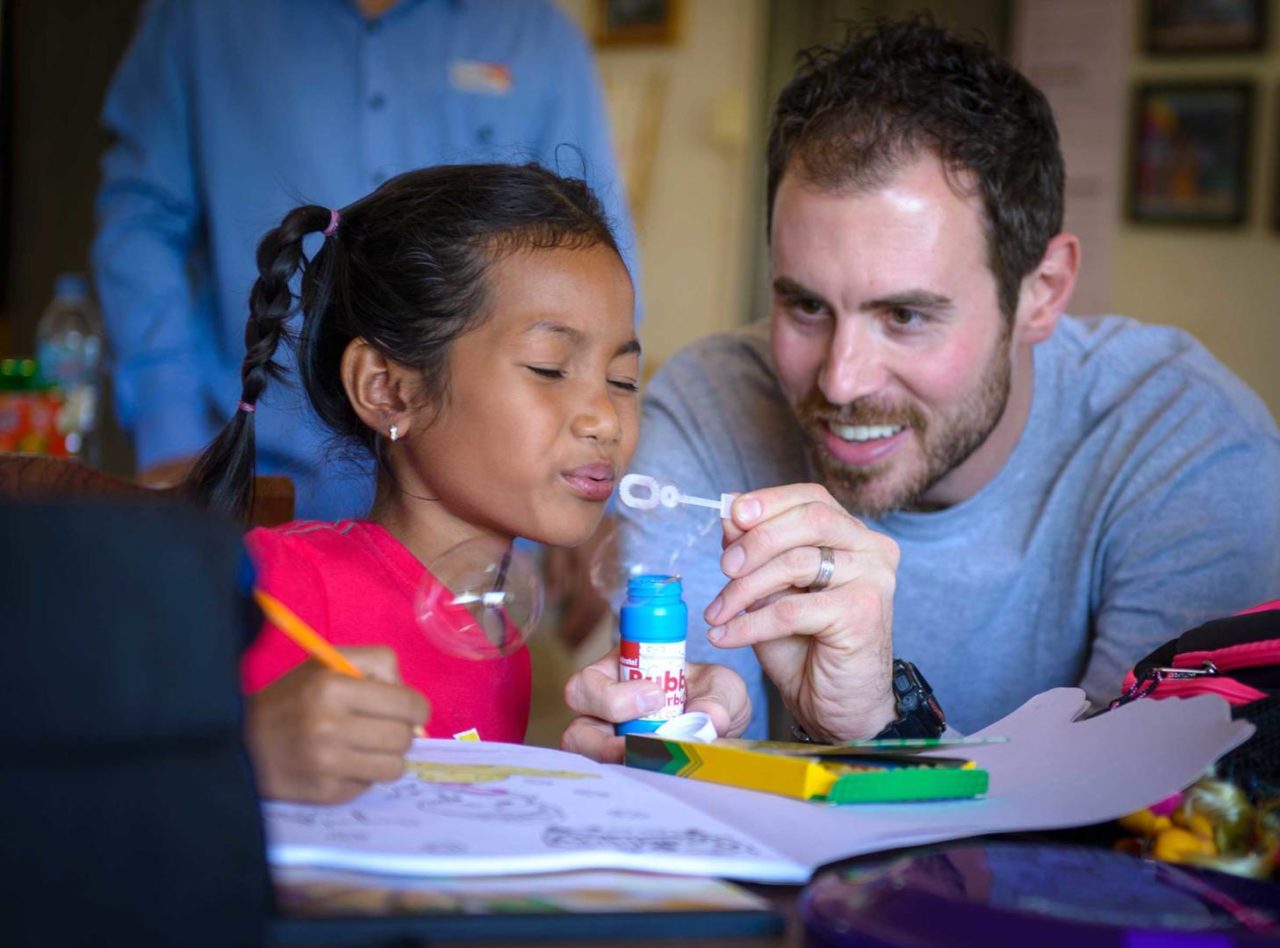
He shared more about his experience in Armenia in December 2017.
What did you learn on your trip to Armenia?
We got to see how World Vision is helping empower families. In Armenia, they traditionally favor the male children to carry on the family name, work, and make money. For so long, they’ve had that mindset that male children are preferred. We got to see how World Vision helps incorporate the whole family and is helping to change families’ mentality.
Who most stood out to you that you met in Armenia?
We met a guy who has this beehive honey business, and he does bee therapy, which I’ve never heard of before. It’s an outdoor shed-looking thing and has windows, and there are benches inside. They put the beehives in there, and you go in and sit, and the sound and the pollen they generate from flying around is supposed to calm you. He’ll sell hives to people, so they have a way to make money by making and selling honey. It was cool to see him taking this and making it into a business.
Then there was a lady named Hermine. She’s trying to support her family on the little income she has. It blows my mind — her monthly salary is $100 and it’s taken everything she’s making to support her kids and pay rent for her house. To see the hurt she had to go through, and her husband leaving to go find work and not coming back, it’s hard. World Vision helped her find a job working as a beautician.
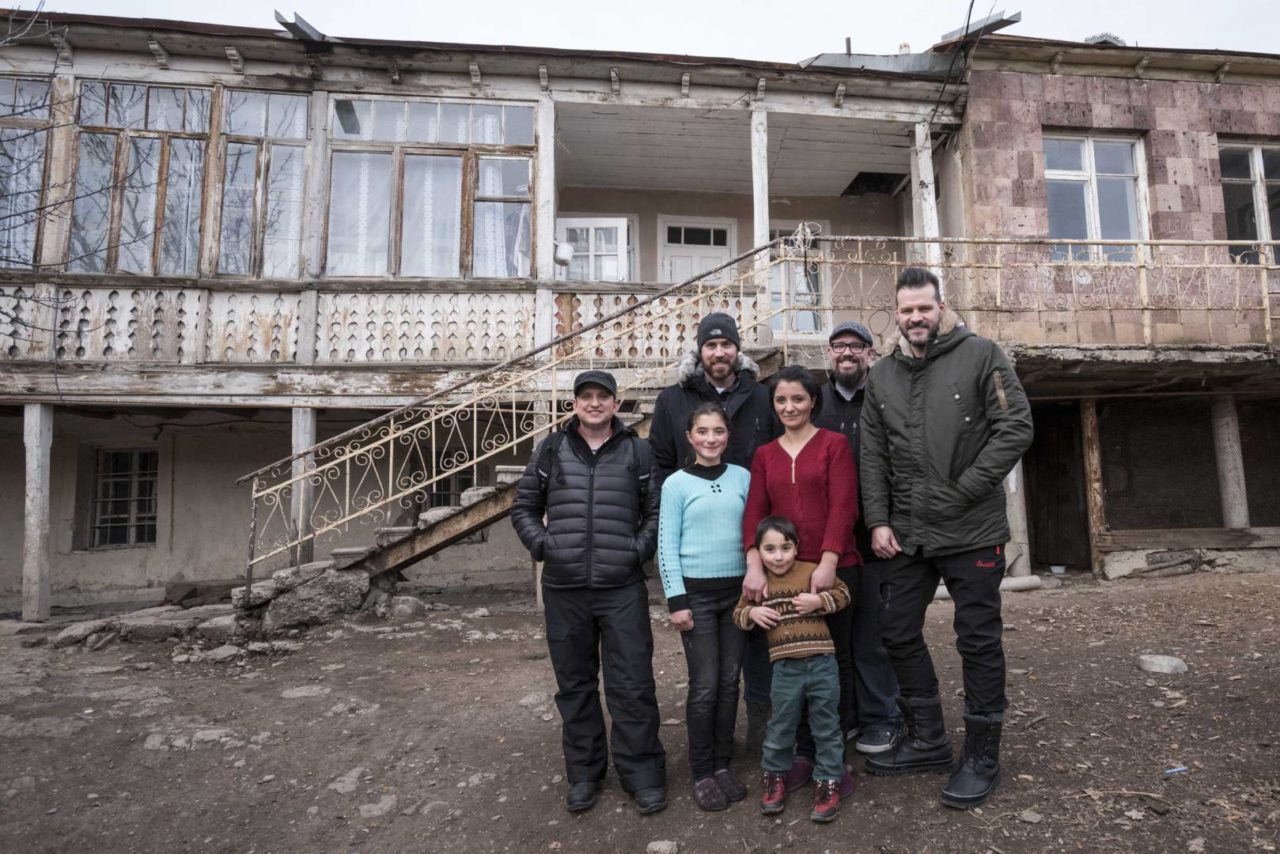
How did God work in you on the trip?
No matter what we go through, no matter the hardships, it’s always keeping our eyes on him. He ultimately is our provider for everything. He provided everything through his Son. For me, it’s knowing that he will provide what they need, allowing them to know who Jesus is and accept Christ. Much of the country is Christian — it was the first Christian nation — so their reliance is on Christ, even in dealing with corrupt government officials and the past communist regime. Through that, God makes a way and will provide. He always does. It may not be on our time frame, but he’ll do it.
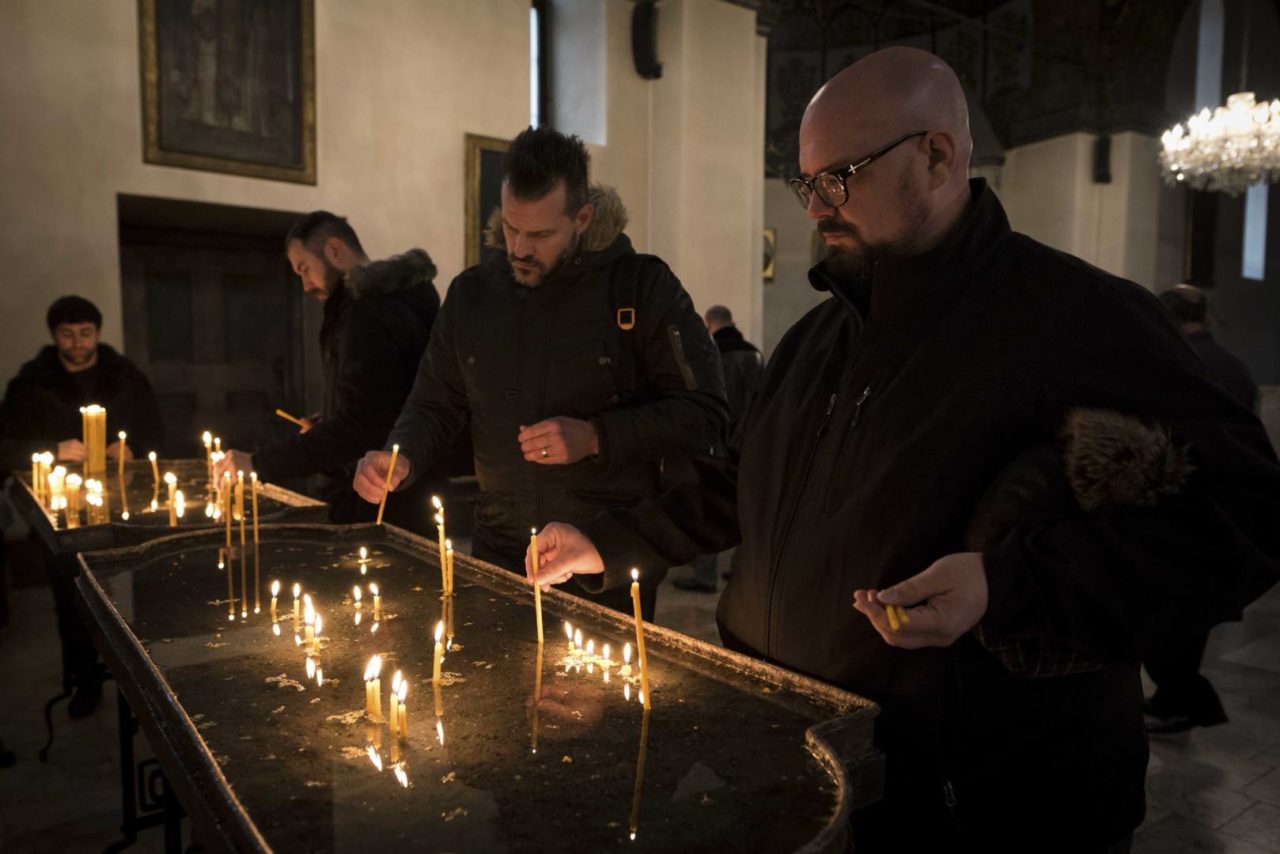
How does all of this impact how you interact with people on the tour?
We see a lot of hurting people out here on the road. Every night when we’re doing our shows, you see so much brokenness. It’s kind of crazy because we have this mentality and culture that we’ve created here of “I can do this” — the self-this, self-that kind of thing. It’s having a reliance on Christ and just focusing in on him and showing people, “Hey, we’re not meant to do these things on our own.” We need his strength to provide for us. We need his strength to pick us up in times of trouble. We need his strength to carry us.
It’s been cool to share those moments with people and to see the light click that, “Hey, I don’t have to do this on my own — I can rely on him.” He wants us to call on him. It’s been great to share that with people and say, “You’re not alone. I’ve been in your shoes. I’ve dealt with that. I want to try to do things on my own, but I have to realize I can’t. I have to rely on him.”
How does that transformation then change others?
We have seen what World Vision does through sponsorship, getting those emails from World Vision saying, “Hey, just so you know, we’ve pulled out of an area because it’s now self-sustaining.” That’s because of people who have come to our shows and supported and sponsored those kids. They can say, “Wow! I was part of that! I helped with that!” Then they go and share that and spread it with others.
Hear Big Daddy Weave music and find out where to see them live in concert, or get updates from Big Daddy Weave about their partnership with World Vision.
